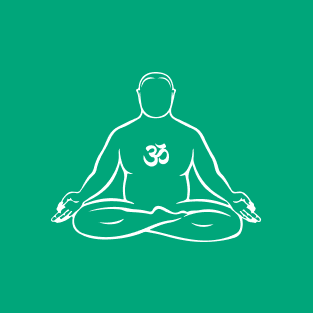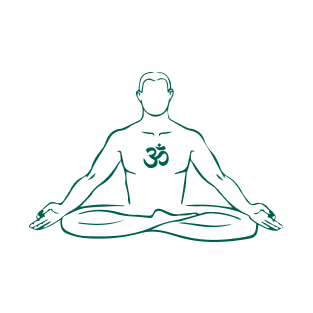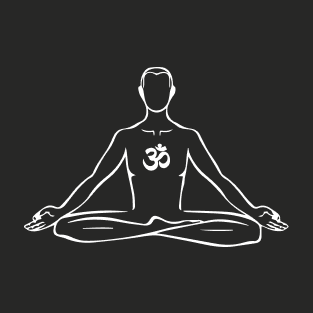Foundations of
Ayurveda
Treatments, massages, nutrition and the three types
What comes to mind when you hear Ayurveda? Well-being massages? Ginger tea? Yoga? None of these answers are wrong - but none are completely right either. Because Ayurveda is much more than individual wellness treatments. Behind it lies an ancient, comprehensive philosophy of life. Here we explain the most important basics of this fascinating health theory: from nutrition, cleansing treatments and meditation to the three dosha types.
Short Definition
What is Ayurveda?
Ayurveda is a traditional and holistic art of healing that originated in India. The word itself means "knowledge of life" in ancient Indian, which is actually a very good description: In principle, it is about how a person can lead a fulfilled and balanced life.
In Ayurvedic scriptures, health is seen as the result of many components. The focus is always on the whole person: well-being arises when body, soul and spirit are in a healthy balance.
Ayurvedic teachings are several thousand years old and are even taught at state universities in India. But it is also becoming increasingly popular in Europe: as a natural alternative medicine, it complements conventional Western therapies. Soothing treatments such as massage, meditation and yoga are ideal for finding a balance to stressful everyday life.
Components
of an Ayurveda Treatment
An Ayurveda cure does not consist of a single therapeutic measure, but of a variety of individually tailored treatments. At the beginning, a specialist expert should determine your personal constitution - and put together a treatment program based on this. In addition to a wholesome, detoxifying diet, the following therapies can be used, for example:
- Massages with Oil and Ghee
- Yoga
- Forehead Massages
- Specialty Massages (e.g. with herbal stamps, singing bowls or silk gloves)
- Hot Water Treatment
- Sweat Therapy
The three Doha Types in Ayurveda
Vata, Pitta, Kapha
The three constitutional types (doshas) play an important role in Ayurvedic thinking. The doshas are actually the three basic life energies that each person possesses in different weightings.
All three doshas are present in every person, but in an individual mixture. Depending on which energies are most pronounced, we speak of Vata, Pitta or Kapha types. It is very important to take the specific dosha type into account in treatment and nutrition - because each dosha type has different needs.
For the well-being of body, soul and spirit, the three doshas should be in as harmonious a balance as possible. It is therefore a good idea to calm excess doshas with suitable therapies and the right diet.


Ayurveda Massages:
Relaxation for Body
and Soul
The art of massage plays an important role in Ayurveda: Indian health teachings recommend massages for many different ailments and also to prevent and strengthen the immune system. With a soothing Ayurvedic massage, you can really let your mind wander: Body and mind reach a state of deep relaxation.
The positive effects of the massage are diverse and range from relaxed muscles, improved sleep and mental regeneration to strengthened tissue. The expert massage also stimulates the lymph flow and thus contributes to internal cleansing and detoxification.
Depending on the dosha type, the season and the acute symptoms, different types of massage can be used. Our trained experts at the Mandira Resort will pamper you with individually tailored wellness massages:
Ayurveda-Medicine:
Natural healing from India and Sri Lanka
In the West, Ayurveda is often seen as a wellness trend, but the oil massages and sweating cures actually conceal complex medical knowledge. Ayurvedic medicine contains medical knowledge dating back several thousand years and is taught at state universities in India. Indian Ayurvedic doctors have to undergo five and a half years of training in order to pass the examination in Ayurvedic medicine.
In contrast to Western medicine, Ayurvedic teaching is characterized by a particularly holistic approach: Illness and health are seen as the result of the entire lifestyle. Body, mind and soul are also seen as a unit and all Ayurvedic treatments are aimed at both physical and mental well-being.
However, it should also be noted that Ayurvedic treatments often do not meet the scientific standards of evidence-based medicine. It is therefore advisable to consider Indian naturopathy as a valuable complement to conventional methods.
Ayurvedic Nutrition
In the West, Ayurvedic nutrition is often perceived as an exotic diet trend: however, behind the spice blends and traditional recipes lies profound medical knowledge. The principles of Ayurvedic nutrition are based on thousands of years of wisdom and are taught at esteemed universities in India. Ayurvedic nutritionists undergo extensive training to understand the complex interplay between foods and the human constitution.
Unlike Western nutritional science, the Ayurvedic approach is notably holistic: nutrition is not viewed in isolation but as an integral part of the entire lifestyle. Body, mind, and spirit are seen as an inseparable unity, and Ayurvedic nutrition aims to enhance both physical and psychological well-being.
However, it should be noted that Ayurvedic nutritional practices often do not meet the scientific standards of evidence-based medicine. Therefore, it is advisable to consider the Indian dietary system as a valuable complement to conventional methods.
Ayurveda Recipe
Delicious and filling Spelt Porridge
Melt the ghee in a pan and roast the cracked spelt in it. Then add the water and season with ginger, cardamom, cinnamon, and maple syrup. Stir in the grated apple and bring the mixture to a brief boil.
Mandira Resort:
Your Authentic Ayurveda Hotel in Styria
We at the Ayurveda-Hotel Mandira are thrilled by the potential hidden within Ayurvedic healing arts. With the life-affirming approach of Ayurveda, we aim to support our guests in:
With our Holistic Ayurveda concept, we have adapted the benefits of Indian healing arts to European needs. At Mandira Resort, you will find delicious Ayurvedic cuisine in four stages – tailored to European dietary habits – as well as consultations with trained Ayurvedic specialists and a wide range of soothing treatments, massages, and activity offerings.
To Inner Harmony
With Yoga and Meditation
Yoga and Ayurveda are closely related in content – a meditative yoga practice is an integral part of Ayurvedic healing arts. It focuses significantly on inner and outer cleansing: Through yoga and meditation, you free yourself from emotional burdens and learn to let go internally. Therefore, at Mandira Resort, we offer an extensive yoga and meditation program.
In meditation, you practice mindful awareness of yourself and your environment. This helps you more easily break free from burdensome thought spirals and focus entirely on the present moment. Regular meditation promotes health in various ways and has proven beneficial for chronic pain, psychological issues, and sleep problems.
Yoga is also a wonderful tool for achieving greater balance in daily life – no wonder it is becoming increasingly popular here! Through yoga, you learn to become more aware of your body while gaining flexibility and strength. The health benefits of yoga are now well-documented: Scientific studies have shown that yoga:
Additionally, yoga is simply fun and a great way to take a short break from daily life. Give it a try: During an Ayurveda vacation at Mandira Resort or one of our yoga retreats, you can experience the healing effects of yoga under expert guidance.
Ayurveda:
Feel what is good for you
Ayurveda is more than just a wellness trend: based on ancient teachings, it emphasizes listening to your body and its individual needs. A balanced and mindful lifestyle according to Ayurvedic principles can lead to greater contentment, well-being, and health. The building blocks for a positive way of life include personalized nutrition, meditation, yoga, and soothing massages – these practices help strengthen your resilience and achieve inner and outer balance.
